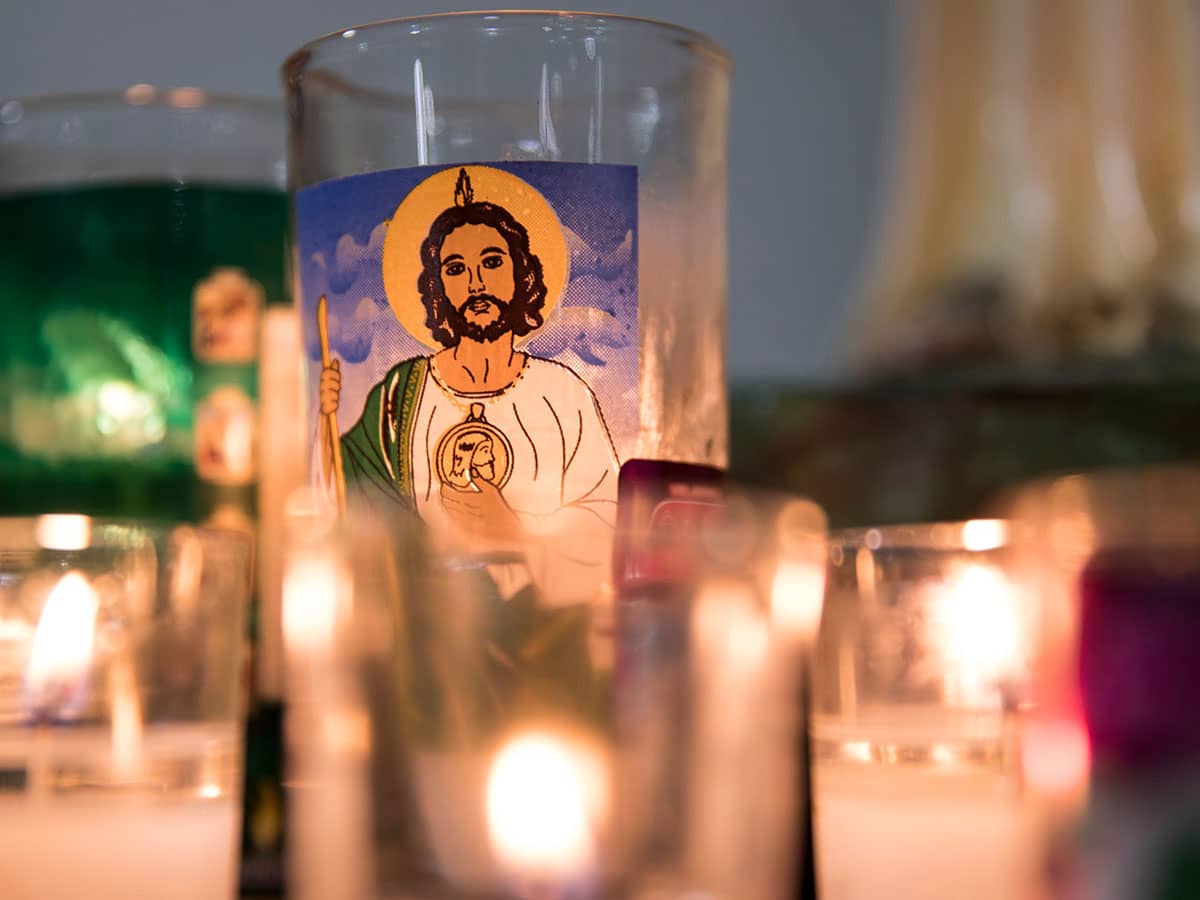She moved closer and put her hands on my knee. At this point it got kind of embarrassing because other people started entering the hot tub, just in time for the exorcism. "Tendonitis, you are not welcome here. Leave this knee at once," she said, her voice growing louder with each sentence. When the prayer was over, she asked me if I would consider asking Jesus Christ into my heart. "Do you know how to do that?" she asked me. I paused for a while, still fighting with myself to remain open-minded, and nodded affirmatively. I grabbed my swim cap and goggles, thanked the woman, and stepped out of the whirlpool.
For the next hour all I could think about was her last question. I asked myself over and over, "Do I know how to do that?" I thought about the difference in language between Catholics and evangelical Christians, between Catholics and many types of Christian denominations. I have sometimes envied the precision with which my born-again evangelical friends remember their conversions: the exact date and time they accepted Jesus into their hearts. But I have grown to appreciate the seven sacraments Catholics celebrate, in which, at different times in our lives, we accept Jesus into our hearts.
When I hear a fellow Christian's tale of dramatic, datable rebirth, I often think of Confirmation, the sacrament which most celebrates the "yes" to Jesus that many other Christians describe in their conversions.
When the day of Pentecost had come, [the disciples] were all together in one place. And suddenly from heaven there came a sound like the rush of a violent wind, and it filled the entire house where they were sitting. Divided tongues, as of fire, appeared among them, and a tongue rested on each of them. All of them were filled with the Holy Spirit and began to speak in other languages, as the Spirit gave them ability. (Acts 2:1-4)In the sacrament of Confirmation, believers are anointed with the gifts of the Holy Spirit--wisdom, understanding, knowledge, piety, fortitude, counsel, and fear of the Lord--so to be able to continue Jesus' mission on earth. As I understand the sacrament of Confirmation, that one day of anointing--that one day of agreeing to spread God's good news on earth--represents a lifetime of saying yes. The yeses that have come later in life have been just as important--possibly even more important--than the first one, because they were accompanied by a deeper understanding of what saying yes to God entails. I am grateful to the woman in the whirlpool for reminding me that I agreed to be Jesus' advocate in this world fifteen years ago, and that commitment remains today and tomorrow and the next day.

